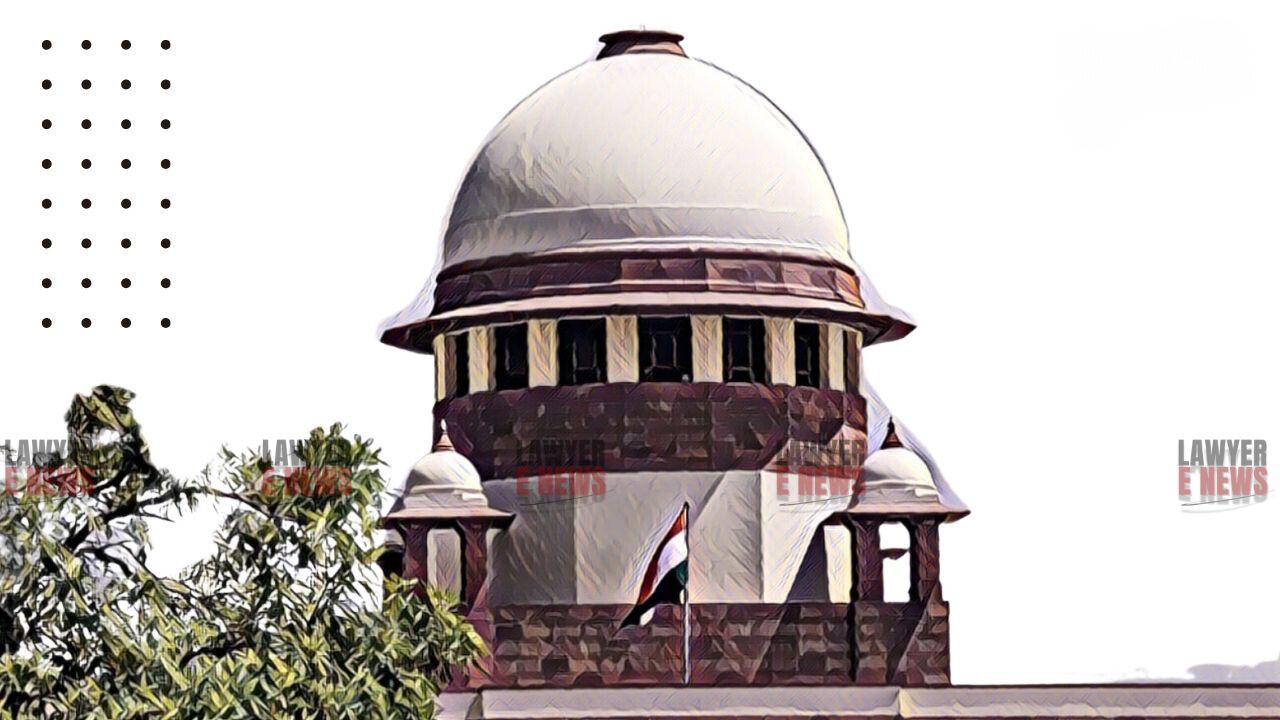-
by Admin
15 February 2026 5:35 AM



Continuous, Long-Term Service Cannot Be Brushed Aside Merely by Labeling Appointments as Temporary or Part-Time - Supreme Court of India allowed appeals challenging the rejection of pleas for regularization of long-serving temporary employees engaged by the Central Water Commission (CWC). The Court set aside the orders of the High Court and Central Administrative Tribunal (CAT) that denied regularization, holding that the appellants' long and continuous service justified their regularization under the principles laid down in Secretary, State of Karnataka v. Uma Devi (2006) 4 SCC 1.
The bench comprising Justice Vikram Nath and Justice Prasanna B. Varale observed:
“The appellants’ engagement for over a decade, performing indispensable tasks integral to the functioning of the Commission, cannot be disregarded merely because their initial appointments were labeled as part-time or contractual.”
The Court quashed the abrupt termination orders issued in 2018, directed the reinstatement of the appellants, and ordered their services to be regularized with continuity, though without back wages.
"Preferential Treatment to Others in Similar Roles Violates Equality Under Articles 14 and 16"
In a key observation, the Court criticized the discriminatory treatment accorded to similarly placed employees who were regularized despite shorter service tenures or lack of educational qualifications. The Court found the denial of regularization to the appellants arbitrary and violative of the constitutional guarantees under Articles 14 and 16.
The judgment noted: “Preferential treatment accorded to individuals with lesser service and no qualifications exemplifies discriminatory behavior. Such disparity contravenes constitutional principles of equality and cannot be sustained in law.”
The appellants, engaged as part-time employees in cleaning, maintenance, and support roles in the CWC, had served continuously for over a decade, with some having rendered nearly two decades of service. Their roles included cleaning, gardening, and dusting, which were integral to the daily operations of the Commission.
After being denied regularization by the Tribunal in 2018, their services were abruptly terminated without notice. Aggrieved, they approached the High Court, which dismissed their claims, citing the absence of sanctioned posts and educational qualifications, and upheld the Tribunal's decision.
The appellants subsequently approached the Supreme Court, asserting that their appointments were not illegal but, at most, irregular, and that their service met the criteria for regularization as laid down in Uma Devi.
The Court issued a detailed judgment addressing the following key issues:
Long-Term Service and Integral Role in Operations
The Court emphasized that the appellants had performed essential, ongoing functions that were not sporadic or project-based. The nature of their duties, such as cleaning and gardening, were fundamental to the Commission’s daily functioning and akin to the responsibilities of regular posts.
The Court stated: "The appellants’ long, uninterrupted service and the integral nature of their work cannot be overlooked. Their duties were neither casual nor peripheral but essential to the Commission’s operations."
Regularization Under Uma Devi Principles
The Court applied the principles laid down in Uma Devi, distinguishing between "illegal" and "irregular" appointments. It held that the appellants' appointments were not illegal and that their long service qualified them for regularization.
The Court cited its recent decision in Vinod Kumar & Ors. v. Union of India & Ors. (2024), where it held:
"Procedural formalities cannot be used to deny regularization to employees whose appointments, though irregular, have matured into substantive service through long-term engagement and satisfactory performance."
Abrupt Termination Without Notice Violates Natural Justice
The termination of the appellants’ services without prior notice or an opportunity to be heard was found to be arbitrary and in violation of principles of natural justice.
The Court observed: "Even contractual employees are entitled to a fair hearing before termination. The abrupt dismissal of the appellants, after decades of service, is arbitrary and unlawful."
Rejection Based on Educational Qualifications Unreasonable
The respondents had argued that the appellants lacked the educational qualifications required for regular appointments. The Court rejected this argument, holding that the nature of the appellants’ duties did not inherently mandate formal education.
The Court noted:
"Duties like cleaning, gardening, and dusting do not require formal educational qualifications. The respondents’ reliance on such criteria, particularly after decades of satisfactory service, is unjust and unreasonable."
Discriminatory Treatment of Similarly Placed Employees
The Court found evidence of discriminatory regularization of other employees with similar or lesser service durations and without requisite qualifications.
The judgment cited:
"The respondents’ own seniority list shows individuals with shorter service and no qualifications being regularized. This exemplifies arbitrariness and violates Articles 14 and 16 of the Constitution."
Criticism of Misuse of Temporary Employment Contracts
The judgment also addressed the broader issue of misuse of temporary contracts by government institutions to evade obligations of fair employment. The Court criticized the trend of outsourcing core functions to private contractors, which perpetuates exploitation and denies workers job security and benefits.
Referring to international practices, the Court noted:
"The International Labour Organization (ILO) emphasizes stable employment and fair treatment of workers. Misclassification of workers as temporary employees undermines their rights and contravenes global labour standards."
The Court also drew parallels to Vizcaino v. Microsoft Corporation (97 F.3d 1187, 9th Cir. 1996), a U.S. case that condemned the practice of misclassifying workers to deny them benefits.
The Supreme Court passed the following orders:
The termination orders dated October 27, 2018, were quashed.
The appellants were directed to be reinstated immediately, with their services regularized forthwith.
The appellants were not entitled to back wages but were granted continuity of service for the purposes of post-retirement benefits.
The Supreme Court’s decision in Jaggo v. Union of India & Ors. underscores the principle that long-serving temporary employees engaged in indispensable functions deserve fair treatment and regularization. By quashing arbitrary termination orders and directing reinstatement with regularization, the judgment sets a strong precedent for safeguarding the rights of workers against exploitation through temporary contracts and misuse of outsourcing.
Date of Decision: December 20, 2024
